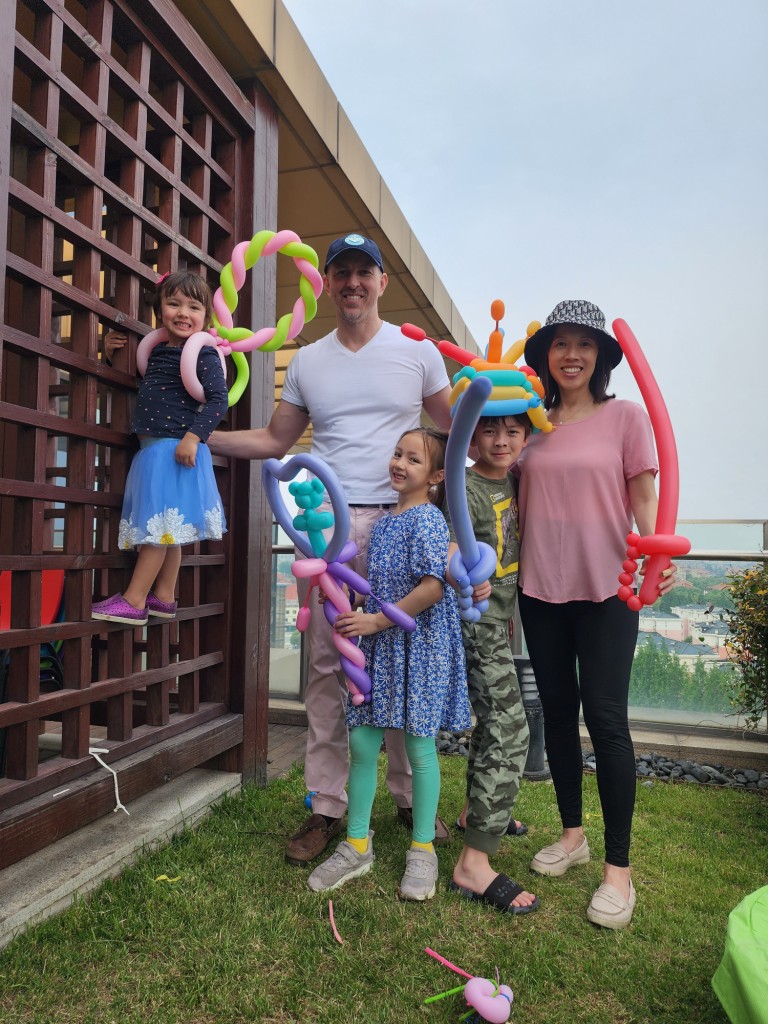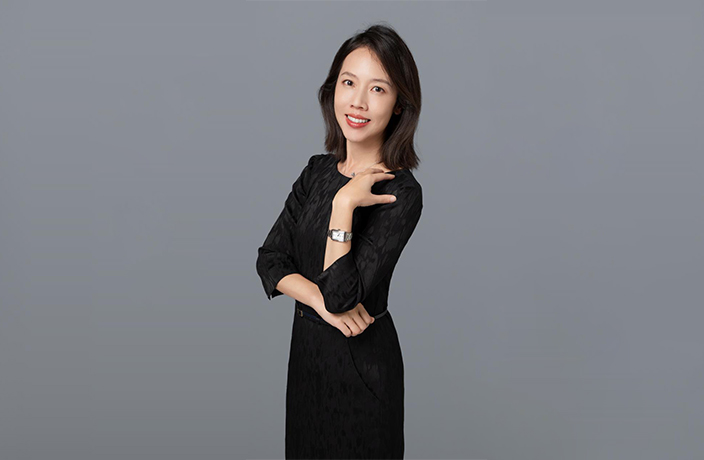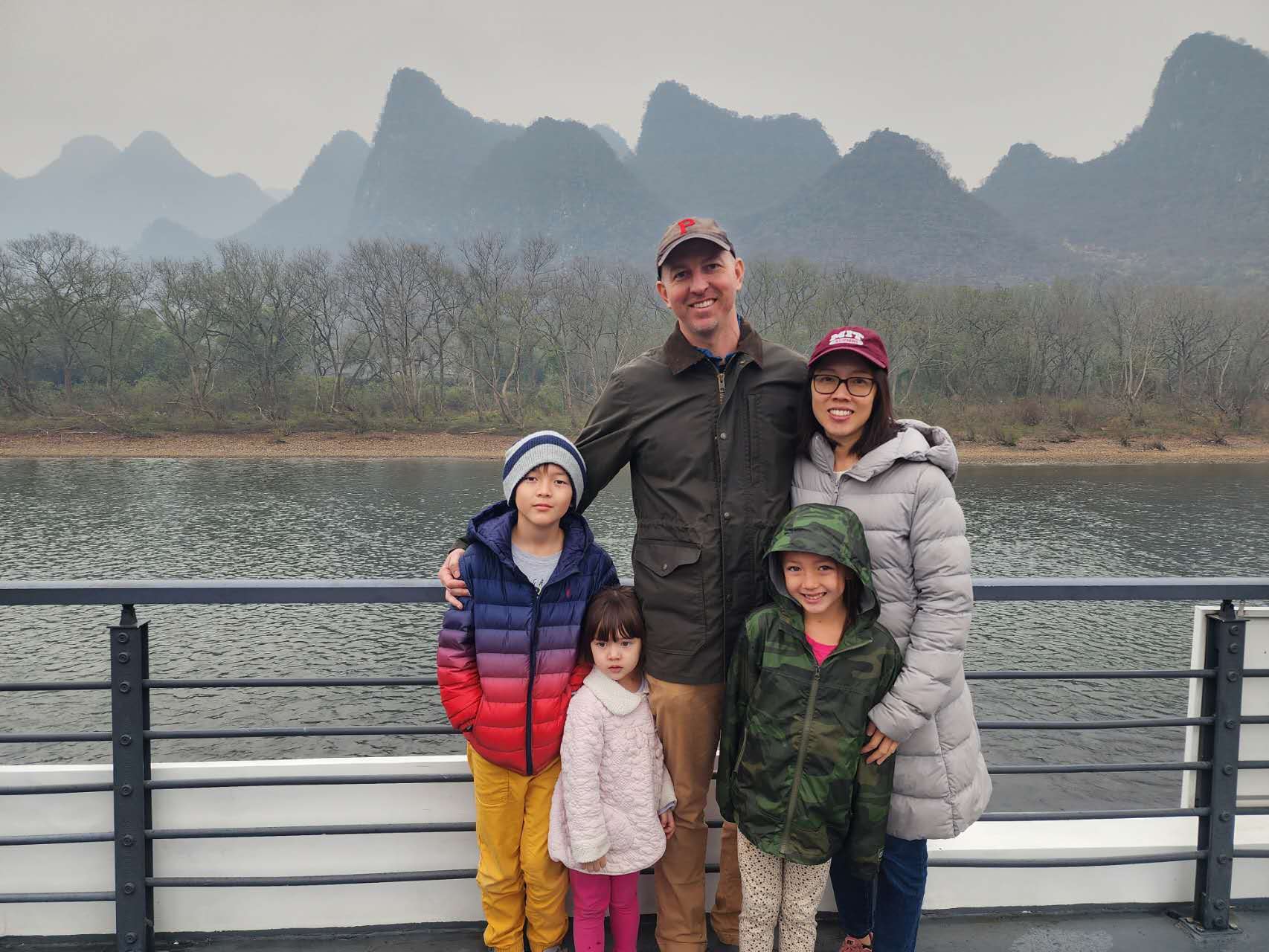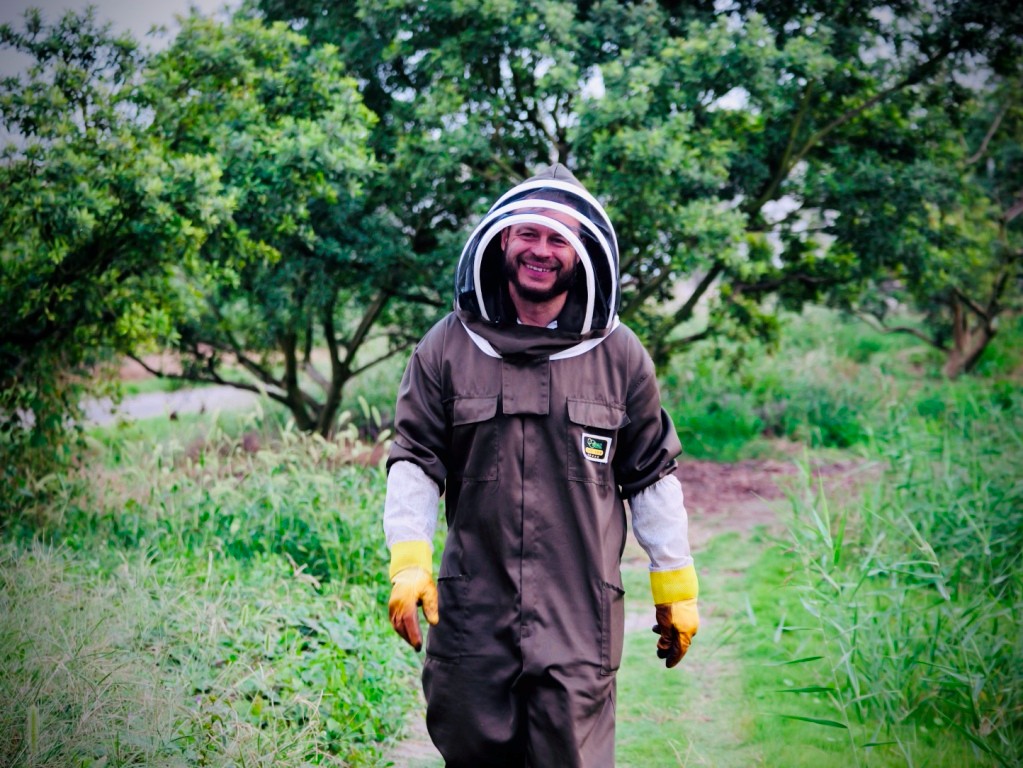Born in sweltering Guangzhou, Yi Larson emigrated to snowy Buffalo, New York with her family when she was just five years old.
After an illustrious career in finance in the US – including 10 years working at Goldman Sachs, the world’s most prestigious investment bank – and with her fourth child on the way, she has decided to return to China, taking up the role of CFO at biotech firm LianBio.
We sat down with Yi to hear her story...
On immigrating to the US at five years old...
I still remember it very well. We lived just outside of Buffalo, one of the coldest cities in America... freezing.
It was so different to Guangzhou, where I was born. And I didn't speak any English at the time, so it was quite a shock.
We really didn't have very much, and both my parents worked full time, changing jobs and careers, as many immigrants do when they moved to the US.
We were poor, and every member of my family worked in some capacity to help us get by. I helped my dad repair car engines in our garage for resale.
On how that childhood informed her work ethic...
I felt the responsibility to help the family as much as possible. I took on a paper route at 10 years old, getting up at the crack of dawn, delivering newspapers.
I had to be responsible: you paid for the newspapers upfront, and then you collected the money, and you kept what was leftover.
It didn't pay that well, but it paid for my school lunches, you know? So it really taught me about work ethic and the value of money.
From then on, all through my childhood, I worked – as a cashier at a grocery store, as a waitress, I babysat, I tutored…I always worked alongside my education.
And with each subsequent job, it was slightly less manual labor, a little bit more highly skilled, and it paid a little bit better.
So I really appreciated that – Wow, by using my brain, I don't work physically as hard, and I get paid better.
It taught me about the value of education.
On education and the importance of challenging oneself...
Education was always something that was very important to us. My parents were both teachers in China, and I tutored and taught along the way.
I was fortunate in that, where we landed in America, they had very good public schools. They prepared me for higher education, and I was fortunate to earn a spot at MIT, the world’s most prestigious technical school.
In some ways, I followed in the footsteps of my father; he taught physics in China, and I happen to love physics and math, and thought electro engineering was a great way to apply it.
So I ended up pursuing that degree. But I also did it knowing that electro engineering was one of the toughest disciplines at MIT.
I really wanted to challenge myself, even if I didn't think I was going to be an engineer. Ultimately, I thought this is going to prepare me for anything to come, because it was really challenging.
That's how I approached a lot of the decisions that I made: wanting to really challenge myself, keep options open, and then figure out along the way what I would be best suited for and where my passions lie.
On her return to China...
With my credentials, I had offers to work in any country in the world. I chose to return to China for three reasons.
First, I believe that Chinese biotechnology innovation has a strong future, and I can help build it as CFO at LianBio.
Second, I wanted my four children to learn Mandarin, understand Chinese culture, and become acquainted with their heritage.
Third, I wanted to fulfill a personal desire to return to the nation of my birth and assume my birthright; my father was 42 when he moved his family to America – now I am 42, returning my family to the nation where I was born.
I wish to bring new medicines to the people of my birth country, helping to save countless lives.
I also wish to develop world class innovative medicines in China to export, and help save lives around the world.
On balancing the CFO life and family...
The first thing I have to acknowledge is I am very fortunate to have an incredibly supportive husband. Without him, none of this works.
We met in business school, and he used to work on Wall Street, so he really understands my line of work; he not only serves as a life partner, but also helps me professionally. He's my sounding board, my advisor.
The second thing is recognizing, early on, what my priorities are, because it's very difficult to have everything in your life. For me, the priorities are work and family.
These are the two things that give me the most fulfillment and happiness. And so I'm very intentional and mindful about how I spend my time; it helps me cut out all the noise... the things that are additive that I don't need to be doing.
Intentional lists, or being intentional and mindful, have really helped me balance.
On becoming more efficient with each child...
Having children really forced me to be a lot more efficient and focused with how I spend my time... to the extent that I didn't think I could be this efficient.
I think it's actually benefited my life.
On the decision to have a fourth child...
I've chosen to have a fourth child, which is quite unusual, particularly here in China. But I think it speaks to the fact that I truly mean it when I say that work and family are my two priorities.
I derive so much joy from my family, and feel that it is a worthwhile thing in life – if you can, and you have the resources and the means, continue to have children.
And it shouldn't stand in the way of your career.
I feel like I can be an example to people that you can do both of these things, if they are both important to you. There are ways to make it work.
Additionally, for so long there was the One-Child Policy in China, leading to a demographic shift that is gonna have large societal impacts, so right now there's a big push in the country for people to have more kids.
So hopefully sharing my experience can be beneficial as well.

On being treated differently as a woman...
I would love to be able to say that women are treated equally in all situations, but it's not really the case, right?
In many instances, I am still the only female in the room. I may also be the youngest person in the room. So there's some subconscious bias that can happen.
I think what really helps is, I've had a tremendous amount of experience in the industry; I've got a track record of delivering for our investors and partners.
I try to let my work speak for itself.
On what it takes to break through those biases...
Fortunately, I think we are at a point where you can break through all of the subconscious biases – if you're the most prepared, most experienced, knowledgeable person in the room.
On mentoring other women...
I want to share my story with people, and I want to help women.
One of my roles here is a senior executive at a biotech company, but another is to serve as a mentor to others who are coming up in the system, particularly women – let's just be honest, there are some additional challenges, right?
I have many colleagues I mentor, both formally and informally, and try to help them through their careers. I think it's really important.
And it's not just mentorship – we tend to use the word sponsorship. It's really important; mentorship is about guidance and advice, but sponsorship is about opening doors for people.
So, to the extent I can in my role, I try to open those doors and pave that path for people to continue to advance.
If I can help open doors, if I can provide advice, I want to be able to do that here.
On achieving ones goals...
One of the things that has helped me the most in advancing in my career is thinking about, What is my goal? What is my next step that I want to take?
And then I look at the people who are already in those roles and ask, What are they doing that I'm not doing yet? So where's my gap?
And I work on that and, and close that gap so that I'm ready for that role, and can move to that next step.
Sometimes you may have a long term goal, and it's a series of steps, but just really being thoughtful about, Where is it I'm trying to go? And what do I need to do to get there?
I think that mindset is very helpful. It's certainly helped me a lot.
On the unique optimism of today's China...
One of the first things that struck me is the optimism and the drive here. It is really unmatched in the biotech sector, because we're at the beginning of growth towards innovation in China.
That excitement is due to all the possibilities that are still to come, from the venture capital side to the government investment side to the talent and those returning with experience – such as myself – to help grow and build the industry,
China has gone through a unique set of experiences over the last three decades; growth at a scale that's unmatched anywhere.
This generation of people who've experienced it, they continue to have so much excitement because they see what's possible. The entrepreneurial spirit really exists here.
Combine that with this scale, and that's what is so unique, right? You may find pockets of this here and there. But at this scale? You really don't find that anywhere else.
On Chinese innovation...
It's no longer just innovation from the West coming to China; we're seeing really exciting medicines developed here in China being exported. And there's going to be much more to come on that front.
The palpable excitement that I feel and experienced here makes me very optimistic about the future, specifically for biotech and China.
On serving as a bridge between the US and China...
I work and live here in Shanghai, but interact with US investor partners on a daily basis.
I try to be very balanced in sharing my experiences with both sides to help them understand what I think is really happening... to cut through some of that rhetoric that we see in the headlines, right?
What is really happening? What am I really seeing? Highlighting what I think are the best attributes that both sides have to bring to the table. I do think that that's an important job.
Ultimately, we have more in common than not. Particularly in the healthcare industry – I truly believe we have common goals to improve human health and patient quality of life.
And from that shared commonality, we can build really great things.






















0 User Comments